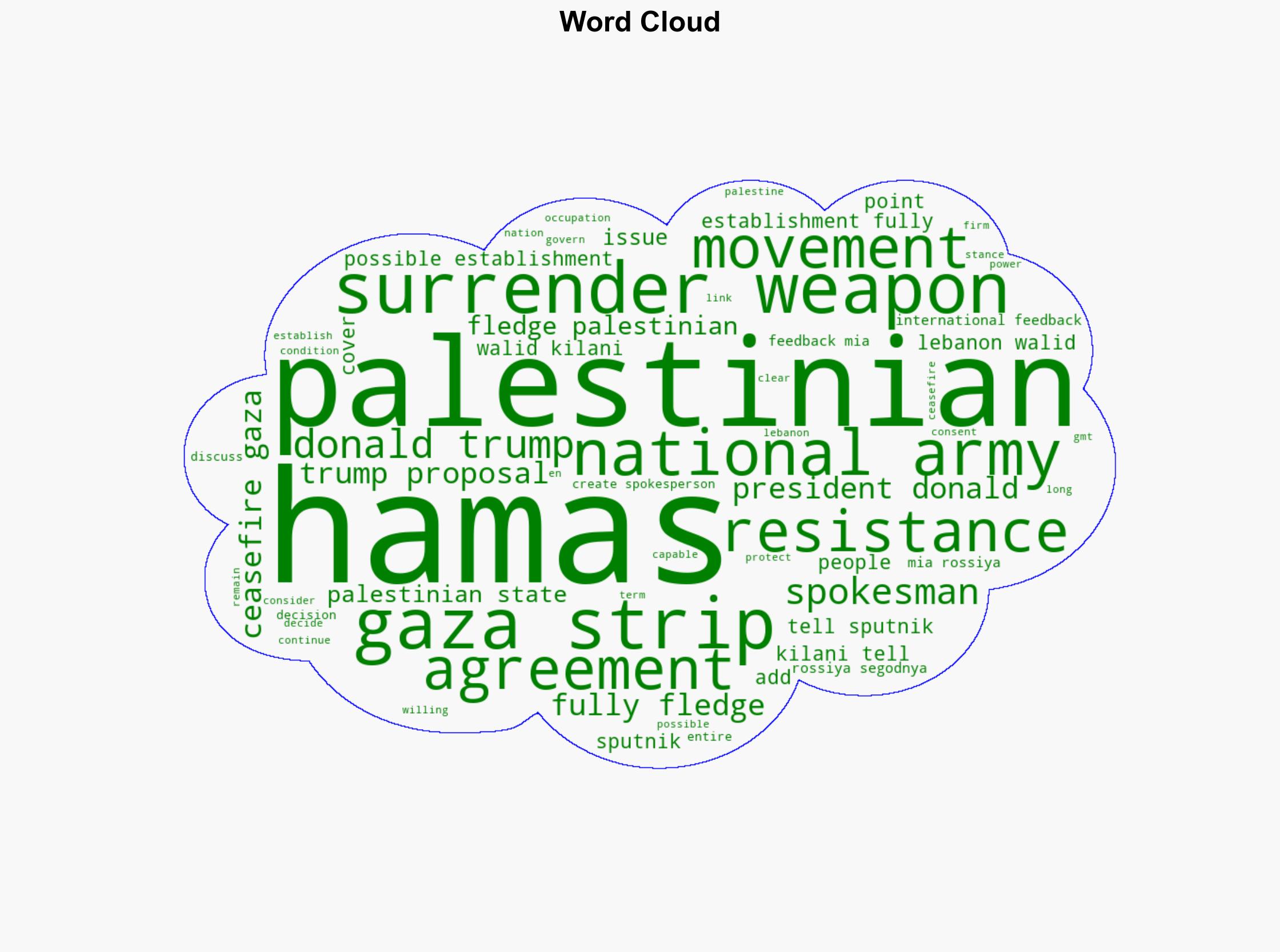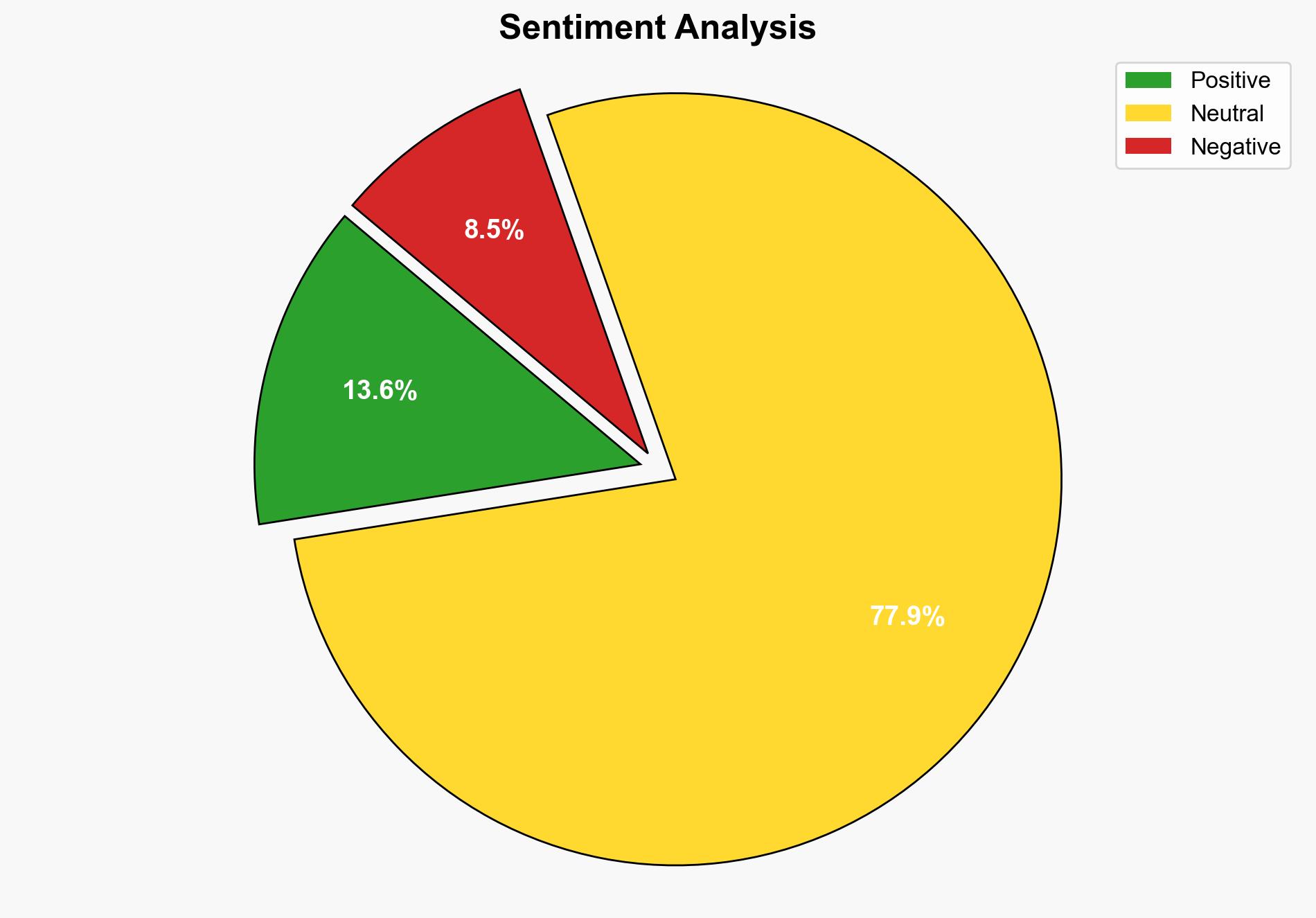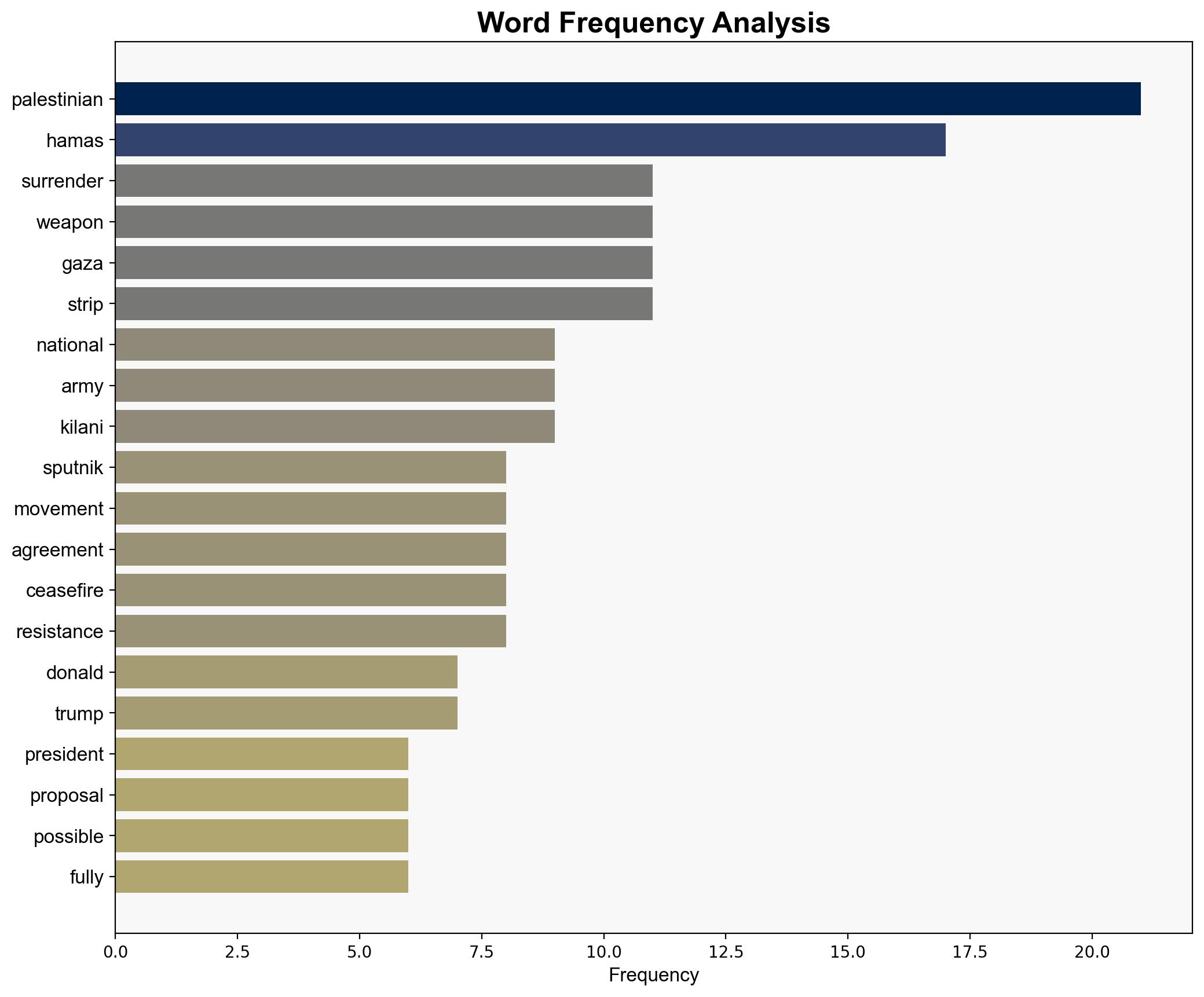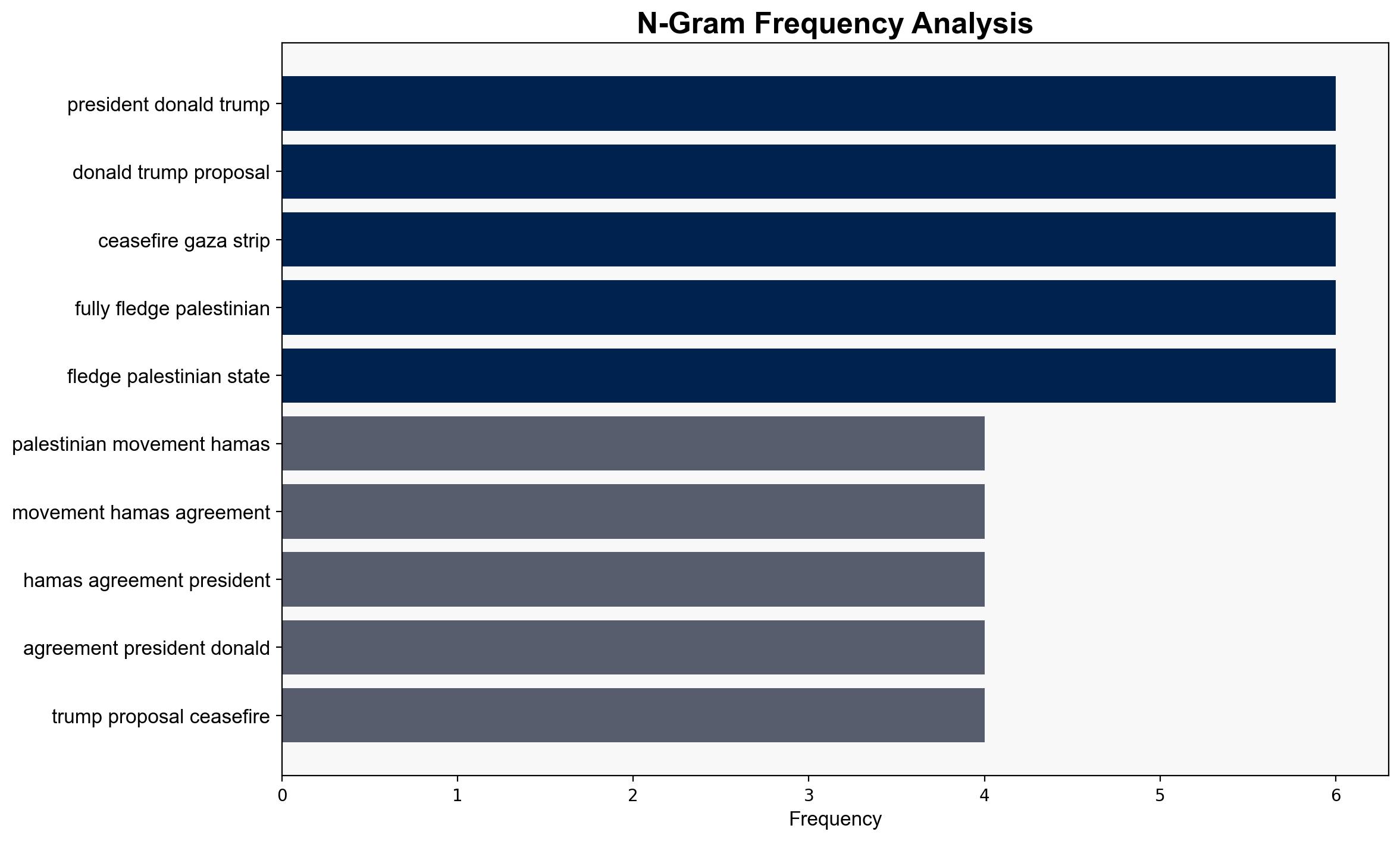Hamas Will Not Surrender Weapons Until Palestinian National Army Created – Spokesperson – Sputnikglobe.com
Published on: 2025-10-04
Intelligence Report: Hamas Will Not Surrender Weapons Until Palestinian National Army Created – Spokesperson – Sputnikglobe.com
1. BLUF (Bottom Line Up Front)
Hamas is unlikely to disarm unless a Palestinian national army is established, which they believe would ensure security and sovereignty. This stance is reinforced by their perception of ongoing occupation and the need for resistance. The most supported hypothesis is that Hamas uses the demand for a national army as a strategic negotiation tool rather than a genuine prerequisite for disarmament. Confidence level: Moderate. Recommended action: Engage in diplomatic efforts to explore the feasibility of a national army within broader peace negotiations, while preparing for potential escalations if demands are unmet.
2. Competing Hypotheses
1. **H1: Hamas’s demand for a national army is a genuine prerequisite for disarmament.** This hypothesis suggests that Hamas views a national army as essential for Palestinian sovereignty and security, making disarmament contingent upon its creation.
2. **H2: Hamas’s demand for a national army is a strategic negotiation tool.** This hypothesis posits that Hamas uses the demand as leverage in negotiations, aiming to strengthen its political position without the immediate intention of disarmament.
Using the Analysis of Competing Hypotheses (ACH) 2.0, H2 is better supported due to historical patterns of negotiation tactics by Hamas and the lack of concrete steps towards establishing a national army.
3. Key Assumptions and Red Flags
– **Assumptions**: Both hypotheses assume that Hamas has the capacity and willingness to negotiate in good faith. It is also assumed that the creation of a national army is feasible and acceptable to all stakeholders.
– **Red Flags**: The lack of clarity on what constitutes a “fully-fledged” national army and the absence of international support for such an initiative. Potential cognitive bias includes confirmation bias in interpreting Hamas’s statements as purely strategic.
4. Implications and Strategic Risks
– **Implications**: If Hamas’s demands are not addressed, there is a risk of increased tensions and potential escalation in the region. The demand for a national army could also influence other Palestinian factions, potentially leading to internal conflicts.
– **Strategic Risks**: Economic instability due to prolonged conflict, potential cyber threats from increased regional tensions, and geopolitical shifts if external actors become involved.
5. Recommendations and Outlook
- Engage with regional and international stakeholders to assess the feasibility of a Palestinian national army as part of broader peace negotiations.
- Prepare contingency plans for potential escalations if demands are not met, including diplomatic and security measures.
- Scenario-based projections:
- Best: Successful negotiations lead to a phased disarmament and increased regional stability.
- Worst: Breakdown in talks results in renewed conflict and regional instability.
- Most Likely: Prolonged negotiations with intermittent escalations and no immediate resolution.
6. Key Individuals and Entities
– Walid Kilani (Hamas spokesperson)
– Donald Trump (Referenced in historical context)
7. Thematic Tags
national security threats, cybersecurity, counter-terrorism, regional focus




